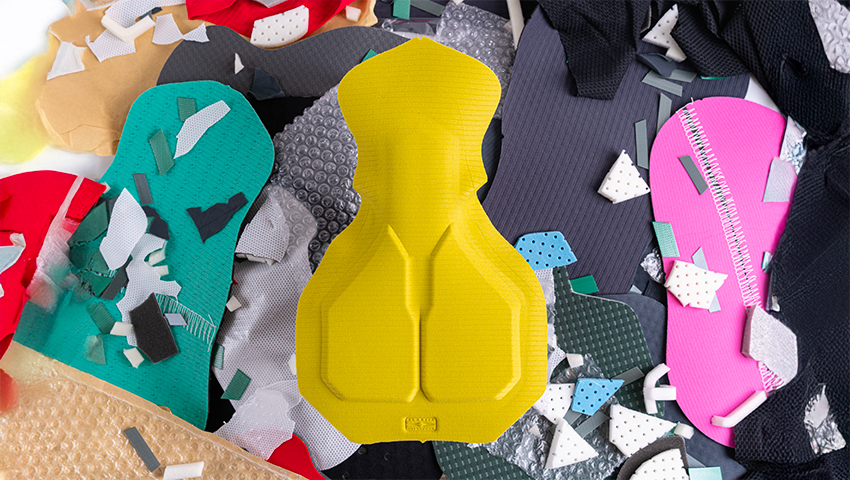Discover how Elastic Interface® has transformed his approach to sustainability through recycled materials, bio-based foams and zero-waste production. Innovation and performance come together in our cycling pads.
1. Foundations of our Sustainability Journey
Once upon a time in 2017, we adopted the 3R program, and in 2018 we were certified ISO 14001.
In 2017, Elastic Interface® embraced sustainability by adopting the 3R program (Reduce, Reuse, Recycle), marking a pivotal moment in the company’s environmental journey. This commitment to responsible manufacturing was soon followed by achieving ISO 14001 certification in 2018, validating their environmental management system.
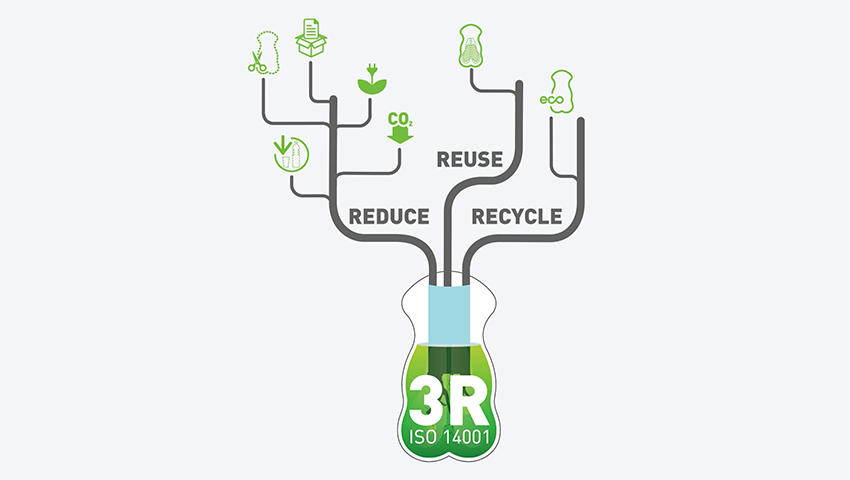
The 3R initiative focuses on minimizing waste through material reduction, finding innovative ways to reuse resources, and ensuring proper recycling of production materials. As a textile manufacturer specializing in technical fabrics, Elastic Interface® recognized their responsibility to minimize environmental impact while maintaining product excellence.
The ISO 14001 certification demonstrates their systematic approach to environmental management, establishing measurable goals and continuous improvement processes. This dual achievement reflects the company’s dedication to sustainable practices, from raw material selection to final product delivery, ensuring their operations align with global environmental standards while meeting the demanding requirements of their athletic and performance wear clients.
2. Pre-consumer recycled fabrics
Transforming Production Waste into High-Performance Cycling Pads
We incorporate pre-consumer recycled fabrics into our cycling pad design as part of our sustainability commitment. We integrate these recycled materials into our advanced fabric systems, maintaining the essential performance characteristics required for cycling comfort while reducing environmental impact.
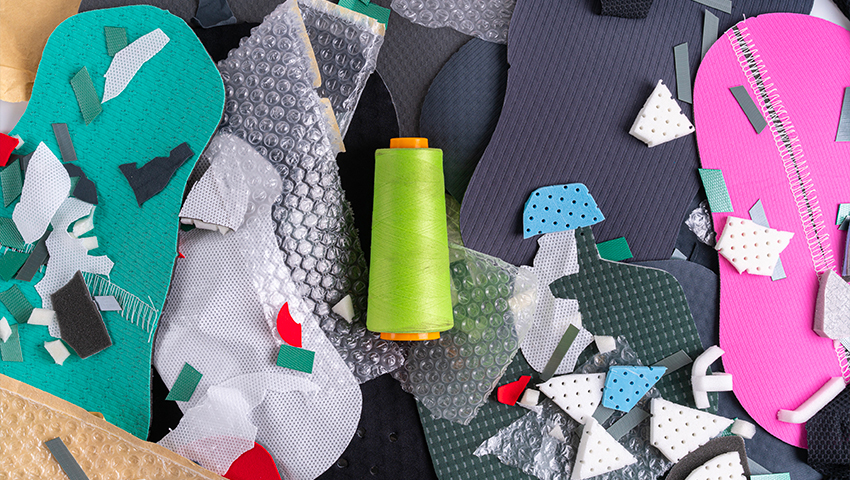
We transform production waste into high-quality textiles that undergo specialized treatments including hydrophilic processing for moisture management and brushing for enhanced softness. By utilizing pre-consumer recycled materials, we demonstrate that sustainable manufacturing doesn’t compromise the technical demands of cycling pads, delivering products that combine ecological responsibility with the breathability, elasticity, and durability essential for cyclist comfort during extended rides.
3. D65 BioFoam
Our Plant-Based Performance Foam
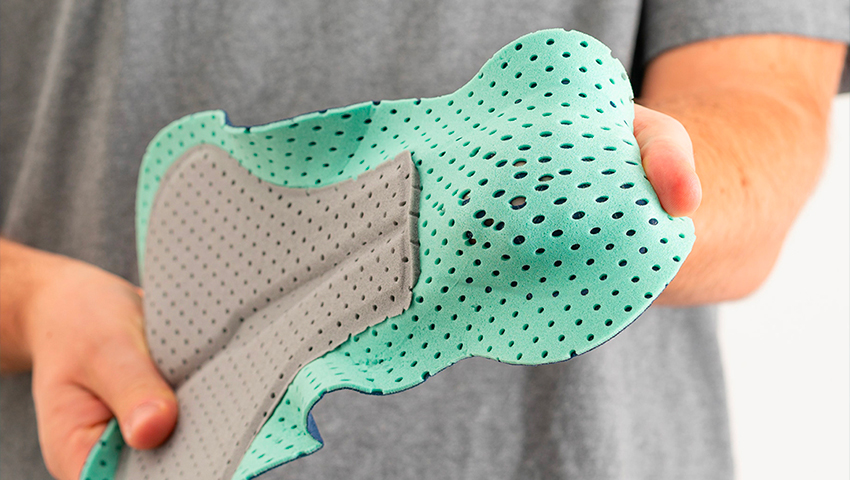
At Elastic Interface®, we use D65 BIOFOAM, the first bio-based foam we’ve offered in our cycling pads. We craft it with bio-based polyols, ensuring it contains 65% plant-based components overall. This lightweight, elastic, and perforated material serves as a high-performance transitional foam in our chamois top layers, where we rely on it to provide excellent comfort and breathability.
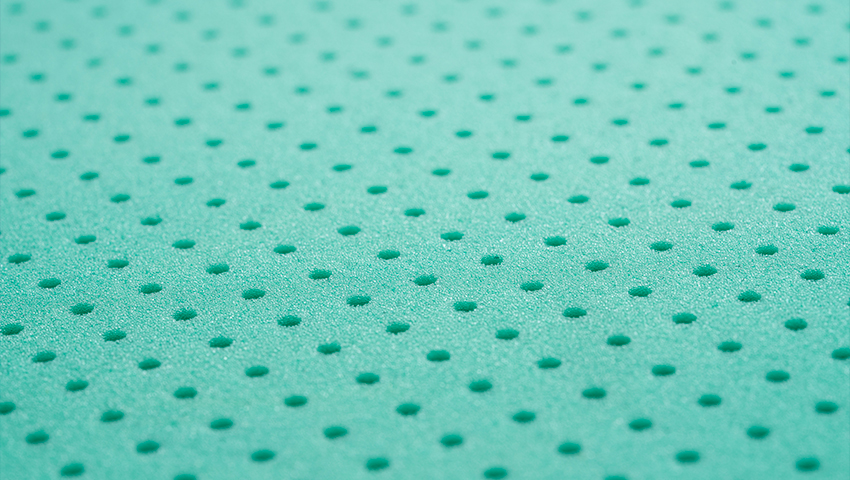
As a proprietary technology of our Cytech Group, we work with D65 BIOFOAM at a density of 65 kg/m³ and 3 mm thickness. We offer it in both Full and Super Air versions, and we incorporate it specifically into our chamois top sheets. This bio-based foam exemplifies how we balance sustainable materials with the performance standards we maintain across our product range.
4. Imperfect capsule collection
Turning Discarded Fabrics into Distinctive Performance
We developed the IMPERFECT capsule collection as a bold statement in sustainable cycling innovation. By utilizing discarded fabrics that would otherwise go to waste, we create unique chamois that challenge conventional aesthetics while maintaining exceptional performance.
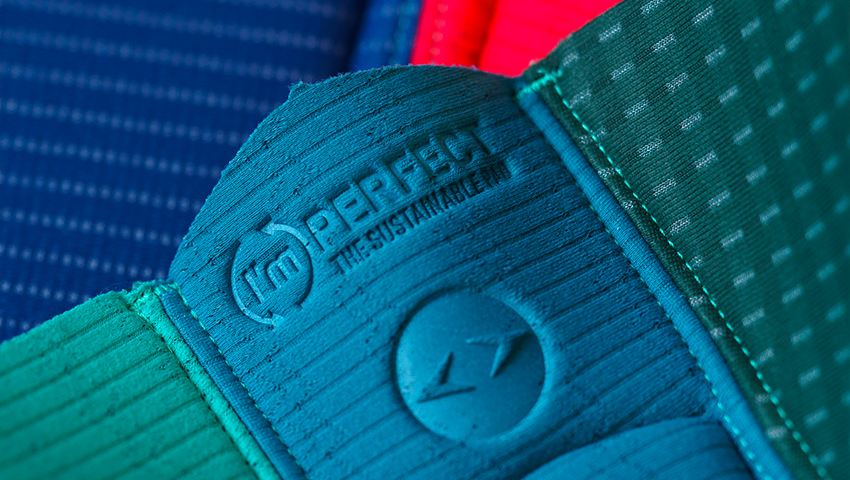
Each pad in this collection features careful stitching and anatomically structured design, ensuring the protection long-distance road cyclists require. The distinctive appearance of every IMPERFECT piece reflects our commitment to zero-waste manufacturing — no two look exactly alike, yet all deliver the same high-quality comfort and support.
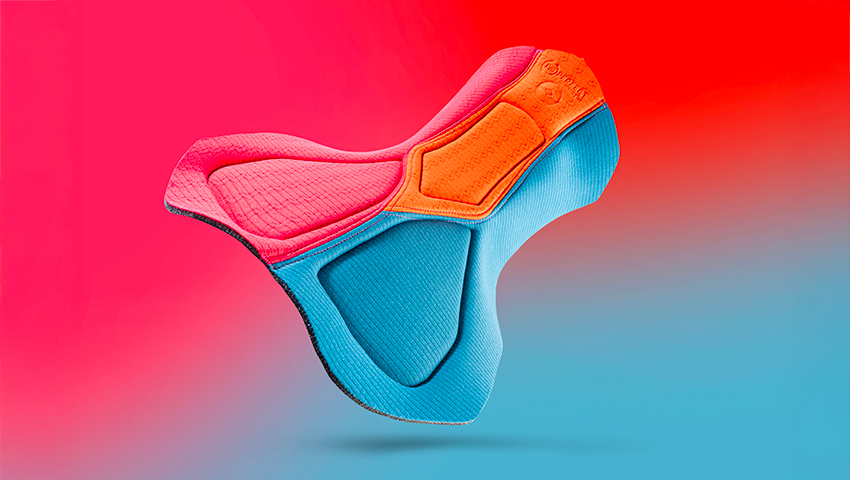
This collection proves that sustainability can drive creativity, transforming what others consider waste into premium cycling products that stand out visually while performing flawlessly.
For more information, we invite you to visit our page on sustainability.

